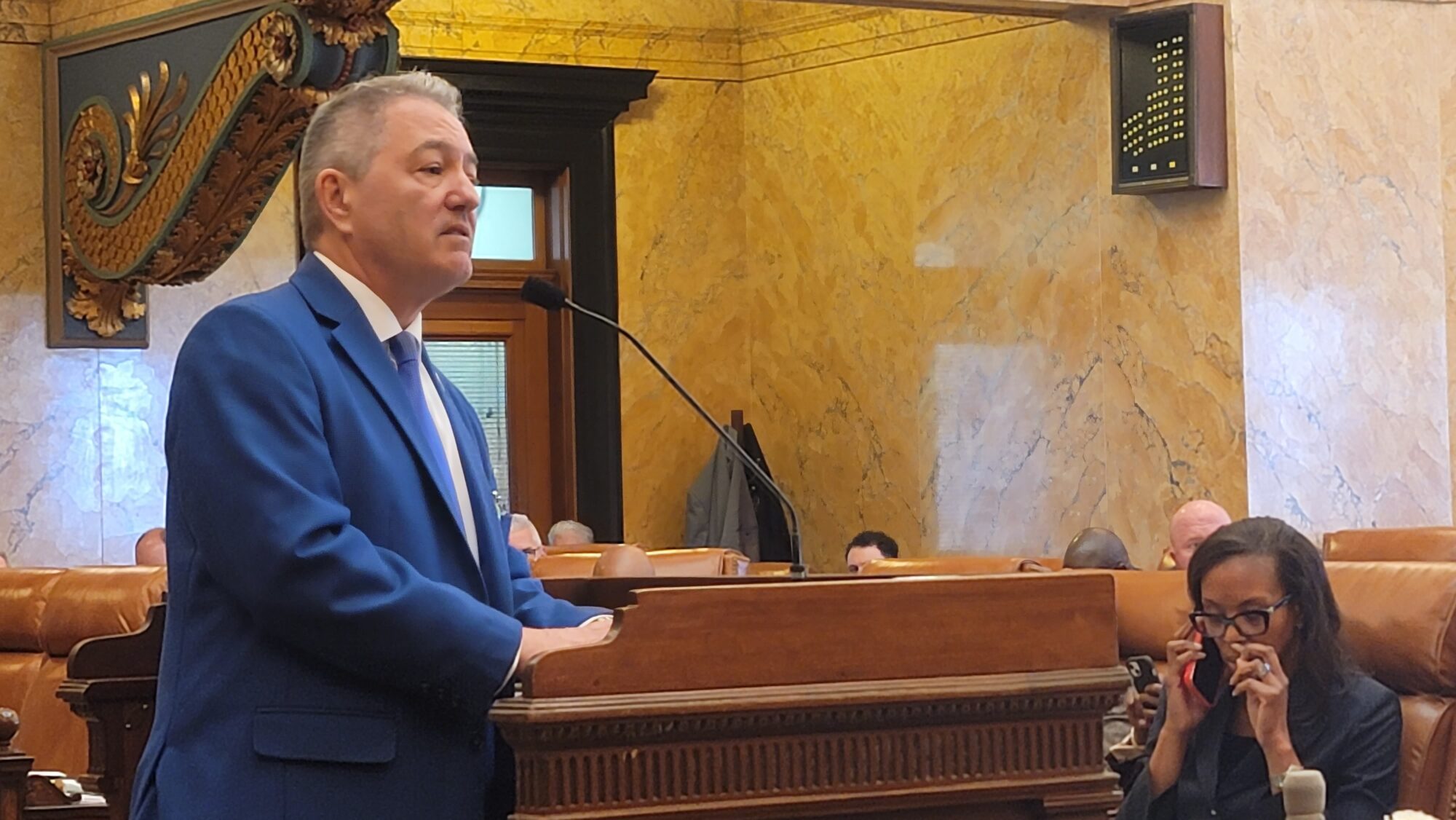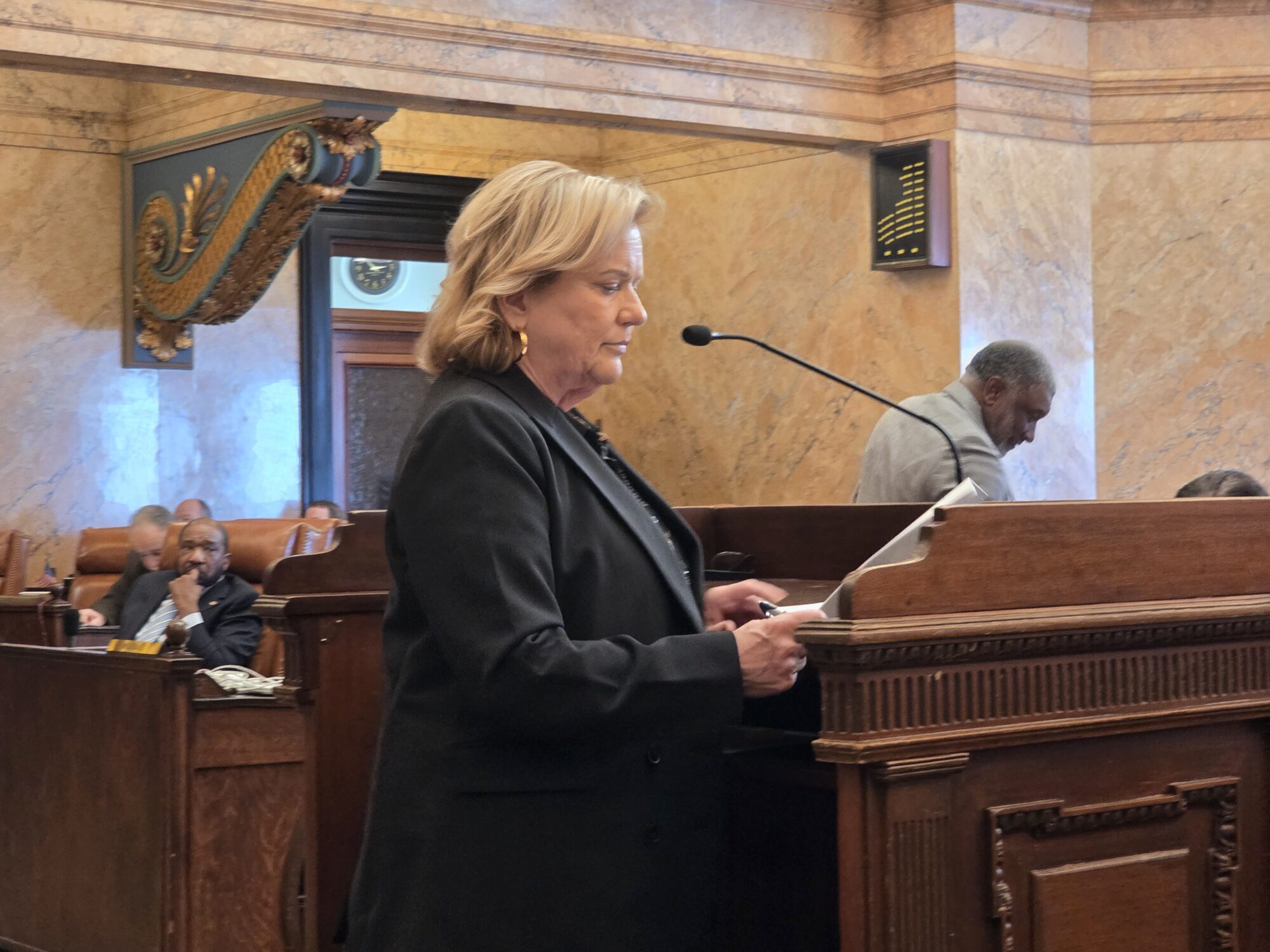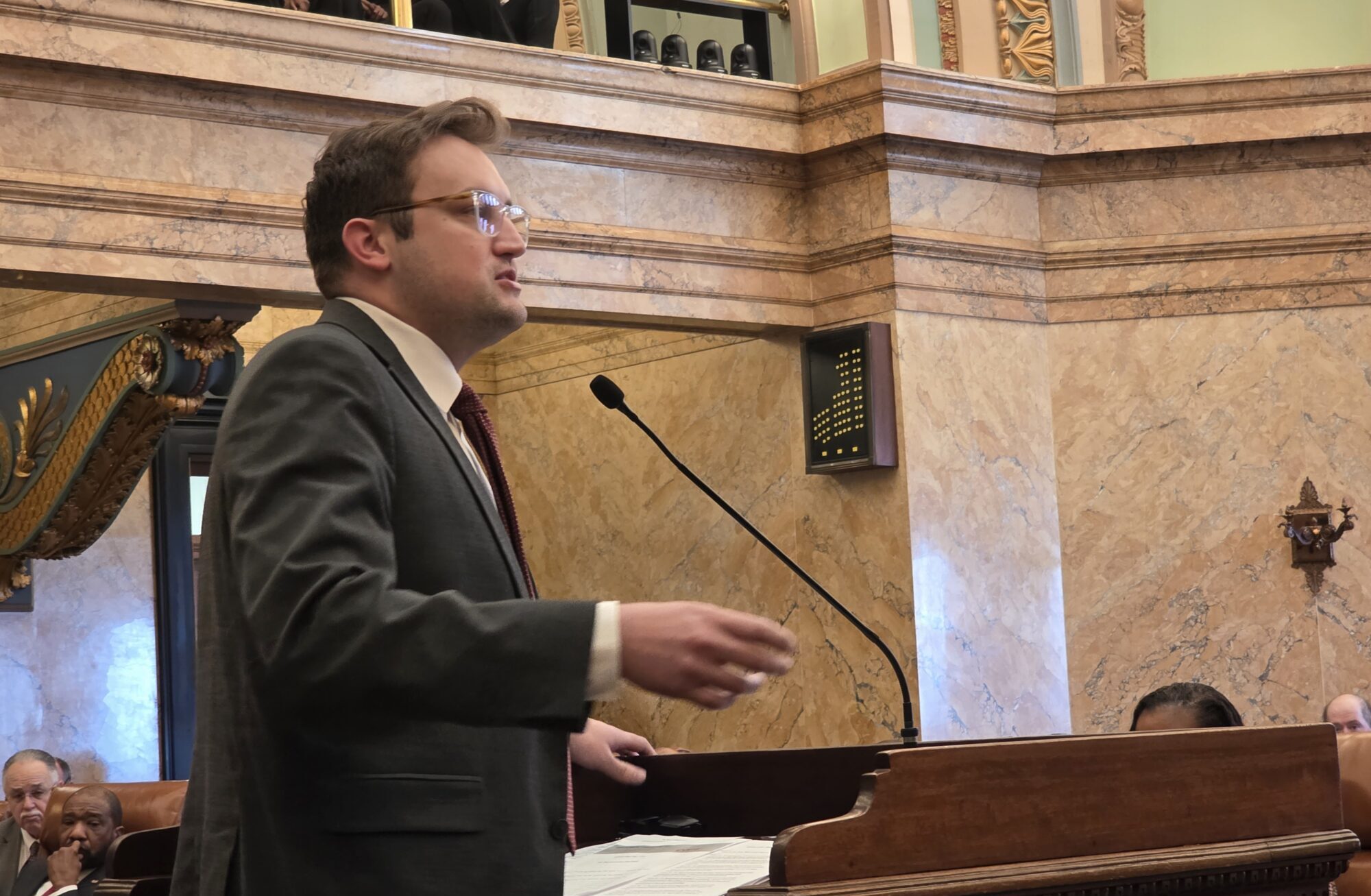Democrat lawmaker kills PBM reform on point of order

Rep. Hank Zuber (R), describes the changes made in a conference report for HB 1123, which aimed to create transparency for pharmacy benefit managers in an attempt to drive down prescription drug prices. (Photo by Jeremy Pittari)
- While the conference report for HB 1123 was being presented, State Rep. John Hines (D) raised a point of order requiring the bill to be recommitted. The move likely ends the potential of PBM reform this session.
Legislation aimed at reforming how of pharmacy benefits managers (PBMs) operate in Mississippi likely died on the House floor Tuesday morning. The measure has been hotly debated throughout this session, only to come to a seemingly unceremonious end in the final week of the 2025 session.
PBMs help determine what drugs to cover for certain conditions, to set reimbursement rates, process claims, and ultimately pay pharmacies. They were designed to reduce prescription drug costs for consumers. Because they control approved drug lists and reimbursement rates, PBMs maintain leverage to negotiate lower prices and rebates with drug manufacturers.
But critics, particularly pharmacists, say unfair practices by PBMs have hurt their businesses with substandard reimbursement rates and preferential treatment for affiliated pharmacies. Independent pharmacists from across the U.S. have waged an aggressive campaign in Mississippi, and other states, to crackdown on the alleged abuses.
After lengthy meetings between House and Senate conferees, a conference report for HB 1123 was agreed to and presented to the House by State Rep. Hank Zuber (R). The conference report contained some exemptions for large employers with ERISA health plans, who had complained that pharmacists’ proposed reforms would add expense to their businesses and raise costs for their employees.
Prior to a vote on the conference report, Rep. John Hines (D) raised a point of order, questioning additional code sections that had been added to the bill since its first introduction to the House.
“What makes a code section enter into a bill that was not part of the original discussion?” Hines asked, calling out several code sections.
The House maintains rules that prevent new code sections from being added during the conference process. Speaker Jason White (R) reluctantly ruled Hines’ point of order was well taken.
“Everybody in this building knows code sections were added. We appreciate you raising the point of order, it will be well taken. It will send the bill back to conference where it will most certainly die. And you can celebrate that with your pharmacists when you see them because that’s what you’ve done,” Speaker White said in response to the point of order. “This wasn’t a gotcha, everybody in this chamber knew that code sections were added because the attempt was to make 1123 more suitable to all the parties. You have in effect sent it back.”
The point of order was raised after State Rep. Becky Currie (R) attempted to have the bill recommitted. Her motion failed on a voice vote.
White was the author of HB 1123 in its original form.
HB 1123 was amended by the Senate and then both chambers worked on a compromise during the conference process. Its aim was to require PBMs to provide information on the rebates they negotiate and receive while also tasking the Board of Pharmacy to create a public website to report that information, among other things.
While describing the conference report on the floor, Rep. Zuber reminded the chamber of the history of the previous attempts to address the matter over the past eight years. He said the push to address PBMs began under the leadership in the House, noting that the House sent three previous PBM-related bills to the Senate within the last eight years.
Despite describing the bill as an attempt to reduce prescription drug prices, Zuber said there was no guarantee a reduction in prices would occur if the bill became law.
“I hope this bill reduces the cost of drugs, I pray that it does,” Zuber said. “Will it? Honestly I don’t know. Only time will tell.”
Zuber noted that he has received many messages from pharmacists and other interested parties on social media, saying that the House conferees did not cave to intimidation tactics.
Speaker White indicated that the House would try again to address PBMs next session.
“We’ll go another year,” White said after ruling on Hines’ point of order.











